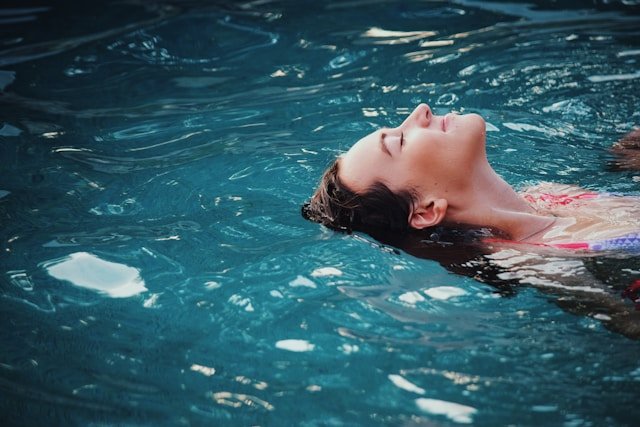
Swimming is a fantastic cardiovascular workout suitable for individuals of all ages. Whether your goals are weight loss, increased endurance, muscular strength, or improved flexibility, here are six essential tips for novice swimmers.
Invest in the Right Swimming Gear
For beginners, having the appropriate swimming gear is crucial. Opt for high-quality swimwear that makes you feel comfortable and secure. Men typically wear swim trunks or briefs, while women often prefer one-piece swimsuits. Essential items for beginner swimmers also include swim goggles and caps, while accessories like kickboards, hand paddles, swim fins, and pull buoys can enhance your experience.
Establish Realistic Swimming Goals
Setting achievable goals is key to becoming a proficient swimmer. Create both short- and long-term objectives while avoiding undue pressure. Whether you are an athlete or have a general fitness background, keep your expectations realistic and give yourself the time to progress at your own speed.
Don’t feel disheartened if you struggle with floating or perfecting different strokes. Allow yourself the freedom to learn at your own pace and refrain from comparing yourself to others. Although swimming is generally safe and even beneficial for individuals with asthma or CMT1, consulting your doctor beforehand is vital to ensure your health and safety.
Consider Professional Instruction
While self-teaching is an option, enlisting the help of a qualified swimming instructor can significantly enhance your skills and efficiency in the water. They can provide constructive feedback on your techniques, helping to boost your confidence. Look for a reputable instructor with recognized qualifications and with whom you feel at ease.
Warm Up Before Swimming
Engaging in stretching or warm-up exercises before swimming is crucial for injury prevention and maximizing performance. You don’t need to push yourself too hard; instead, focus on effective warm-up moves that prepare your body for swimming. Some useful warm-up exercises include jumping jacks, squats, arm swings, arm circles, lunges, and high knees.
Stay Calm in the Water
A common mistake for beginners is panicking while swimming. If you feel anxious in the water, it’s important not to let fear overwhelm you, as it can lead to dangerous situations like drowning. While you’re learning, ensure that a capable swimmer supervises you. If you’re alone, stick to the shallow end and choose a location with a lifeguard present.
Master the Breathing Technique
Proper breathing is fundamental when swimming. Incorrect breathing can complicate your experience and make it less enjoyable. Always exhale when your face is submerged and avoid holding your breath to prevent panic and regulate your breathing intervals.
In Conclusion
Learning to swim doesn’t have to be a daunting task. Pay attention to your body position, grasp the basics, and don’t hesitate to seek professional help.







